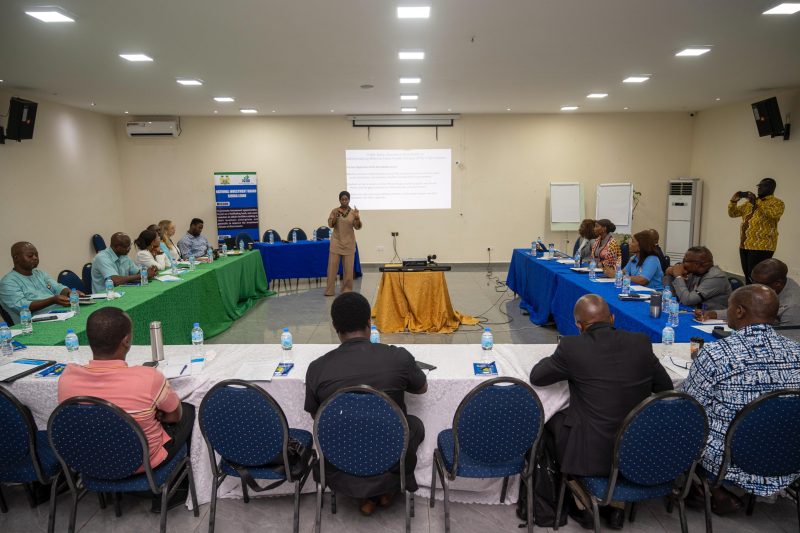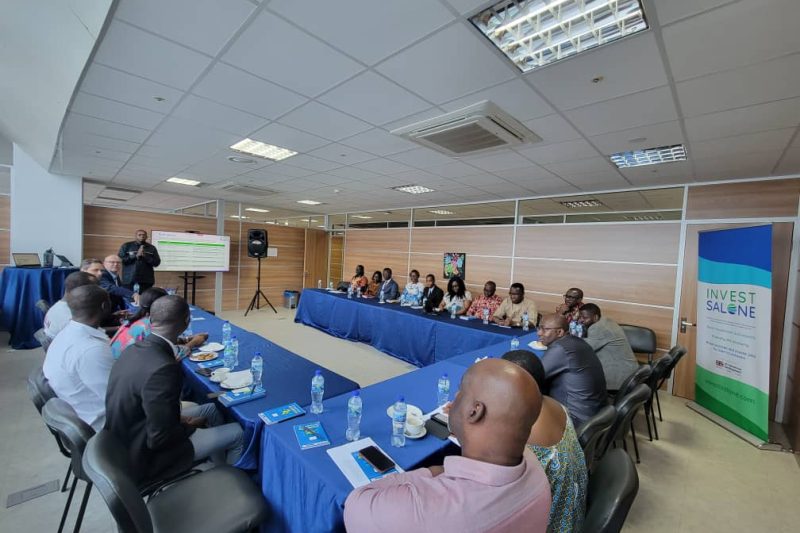As the demand for poultry meat rises regionally and globally, Sierra Leone’s homegrown poultry industry has the potential to make a significant contribution to the country’s post-COVID recovery and food security. For this to happen, collective solutions must be found to constraints such as costly imported poultry feed, a shortage of veterinarian and other services, and the limited availability of quality day-old chicks (DOC), which leave local poultry farmers unable to compete with cheaper imports.
Imported eggs and chicken presently dominate the Sierra Leonean market. It is estimated that Sierra Leone consumes 200 million eggs each year, with local production accounting for just 20% of demand. Figures for the first two months of this year show that Sierra Leone imported 103 tonnes of eggs from Brazil alone.
To address these issues, Invest Salone (ISL), the UK Government-funded private sector development initiative, is working with the poultry sector to chart a collective approach to improving productivity and profitability.
Discussions held earlier this month were attended by leading firms, including Green Hall Poultry Feed, Technical Poultry, Leecon Poultry, Mac Mag Poultry, Fuad Poultry, Beckley Farms, Marco Poultry: Marco Koroma, Talleh Poultry and Lambano Poultry Feed. The talks focused on essential inputs and services such as feed, slaughter services, DOC investment and veterinarian services.
Feed
Feed is a major cost, and participants agreed that controlling feed costs without compromising on growth or yield is key to managing operational costs. However, the seasonal nature of raw materials is a significant constraint. Strategies suggested included encouraging farmers to invest in growing maize (a primary ingredient in poultry feed), and working with Njala University and the Sierra Leone Standards Bureau to identify viable local substitutes, such as garri, fish, soya beans, oyster shells and rice bran, for local production of feed.
Veterinarian services
Access to vet services is extremely limited: Sierra Leone only has one qualified vet and there are no training institutions. Furthermore, essential vaccines and medications are imported from Senegal via Guinea, and have to be pre-ordered. Participants expressed concerns about vaccine quality and the cold chain management process, and the resulting impact on the death rate of day-old chicks. In addition to increased vet services, it was agreed that there is a need for local veterinarian training and improved quality control of poultry medicines and vaccines.
Day-old chicks (DOC)
Farmers agreed that the supply of DOC was costly and unreliable. Most are imported and suggestions for lowering costs included pooling resources to strengthen buying power through a collaborative procurement process, as well as encouraging investment in indigenous chicks. It is critical that new entrants to DOC breeding address issues such as genetic stock, hatchery management and vet services – at the meeting, experience was shared of locally bred DOCs that were less productive, had a shorter life cycle and more deformities than imported DOC.
Slaughter services
The lack of a slaughter and processing facility has also inhibited the growth of the local poultry industry. Participants explored the possibility of other farmers using the in-house slaughter facilities of Sierra Akker, one of Sierra Leone’s larger poultry producers, on a commercial basis. Farmers also discussed setting up a mobile slaughter hub, which has proved viable in other markets.
In general, participants discussed the need for the industry to address sector-wide challenges collectively, over and above the informal collaboration between businesses that already exists. The Poultry Union, which is in the process of being revived, is intended to be the representative body for the industry.
The meeting ended with a commitment to collaboration and knowledge sharing from participants. Invest Salone Team Leader, Chukwu-Emeka Chikezie, noted that coordination is increasingly recognised as necessary for making sustainable progress on collective challenges. In this regard, he concluded, the revival of the Poultry Union boded well for the future of the industry in Sierra Leone.






